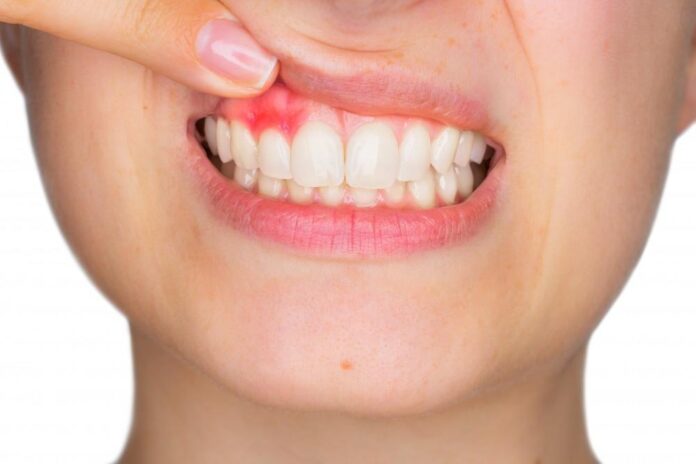
In the realm of oral health, care extends beyond routine cleanings and fillings. This article explores the specialized fields of Orthodontics, Periodontics, Endodontics, and Prosthodontics, each instrumental in maintaining and restoring oral health.
These specialties offer nuanced, comprehensive approaches to dental care, addressing everything from alignment issues to gum health, nerve treatment to restorative dentistry.
Uncover the importance of these oral health care specialties and their integral roles in overall dental well-being.
Understanding Oral Health Care Specialties

The realm of oral health care extends far beyond general dentistry, encompassing a myriad of specialized fields each with its own specific focus on certain aspects of oral health.
One such field is dental hygiene, a cornerstone of oral health care. Dental hygiene importance cannot be overstated, as it forms the foundation for overall oral wellness, preventing conditions like gum disease and cavities.
Another critical specialty within this realm is pediatric dentistry. Insights from pediatric dentistry reveal the necessity of early oral health intervention, as it shapes a child’s future dental health. Pediatric dentists specialize in managing the oral health of children, from infancy through adolescence, ensuring the development of healthy dental habits from a young age.
The Role of Orthodontics in Dental Health
Shifting our focus, we delve into another key specialty in the oral health care sphere, orthodontics, which plays a pivotal role in diagnosing, preventing, and treating dental and facial irregularities.
This intricate field of dental health care is not confined to the fitting and maintenance of braces. It’s an evolving arena witnessing continuous Orthodontic Innovations aimed at improving patient experience and outcomes.
Regular Braces Maintenance, for instance, is one aspect critical to achieving optimal results. It ensures the effectiveness of the treatment and prevents potential complications.
Ultimately, orthodontics forms an essential part of comprehensive dental care, promoting not just aesthetic appeal but also functional harmony in the oral cavity. This specialty, therefore, significantly impacts overall dental health.
Delving Into Periodontics and Gum Health

Periodontics, a vital branch of dentistry, primarily focuses on the prevention, diagnosis, and treatment of gum diseases and conditions affecting the supporting structures of the teeth. This specialty is dedicated to maintaining gum health, emphasizing Gum Disease Prevention and employing various Periodontal Treatments.
Periodontists are skilled in detecting early signs of gum disease, which if left untreated, can lead to tooth loss. They utilize non-surgical procedures, as well as more advanced surgical techniques, depending on the severity of the disease. Periodontal Treatments range from scaling and root planing to more complex regenerative procedures.
An integral part of this specialty is promoting Gum Disease Prevention methods, such as proper brushing, flossing, and regular dental check-ups, to maintain optimal oral health.
What Endodontics Entails in Oral Care
Continuing our exploration of dental specialties, we now turn our attention to endodontics, a field of dentistry primarily concerned with the study and treatment of dental pulp. This specialized area of oral care focuses on diagnosing and treating tooth pain and disease stemming from the pulp and surrounding tissues.
Endodontics notably includes root canal treatments and endodontic surgeries, which are designed to save the natural tooth and prevent the need for extractions. Root canal treatments involve removal of the inflamed or infected pulp, cleaning and shaping the inside of the tooth, and sealing it to prevent further damage.
Endodontic surgeries, on the other hand, address diseases or conditions not apparent on radiographs or those that cannot be treated effectively by non-surgical root canal therapy alone.
Prosthodontics and Restorative Dentistry

In the realm of dental specialties, we now delve into the field of Prosthodontics and Restorative Dentistry, dedicated to the replacement and restoration of lost or damaged teeth.
This specialty has seen significant advancement through dental prosthetics innovations and restorative techniques advancements. Modern prosthetics are designed with precision, replicating the natural function and aesthetics of teeth, thereby offering patients a renewed confidence and improved oral health.
Simultaneously, restorative techniques advancements have enhanced the efficiency and outcomes of dental restorations. With the use of advanced materials and technology, practitioners are now able to restore teeth more effectively, minimizing future dental issues.
This evolution in Prosthodontics and Restorative Dentistry signifies its critical role in elevating the overall standards of oral health care.
Frequently Asked Questions

What Are the Qualifications Required to Specialize in Different Oral Health Care Fields?
To specialize in oral health care fields, distinct qualifications are necessary. Dental Hygienist Training typically involves a two-year associate degree. For Oral Surgeon Education, a four-year surgical residency follows dental school.
How Does Pediatric Dentistry Differ From the Other Oral Health Care Specialties?
Pediatric dentistry differs from other specialties by focusing on children’s oral health. It involves unique practices like Pediatric Sedation Techniques and Anxiety Management in Children to ensure a comfortable and effective dental care experience.
What Does a Typical Day Look Like for a Prosthodontist?
A prosthodontist’s typical day involves meticulous use of specialized tools to create dental prosthetics, patient consultations, treatment planning, and performing restorative procedures, punctuated by ongoing patient communication to ensure comfort and understanding of the process.
How Does One Choose a Suitable Oral Health Care Specialty?
Choosing a suitable oral health care specialty involves considering various Specialty Selection Factors. It is essential to assess your interests, skills, and career goals to navigate the myriad of Dental Career Paths available.
Can a Periodontist Also Provide the Services of an Orthodontist?
A periodontist, despite extensive periodontist training, cannot provide the services of an orthodontist. Orthodontics benefits from specialized training and techniques uniquely tailored to correcting bites, straightening teeth, and supporting proper jaw alignment.



